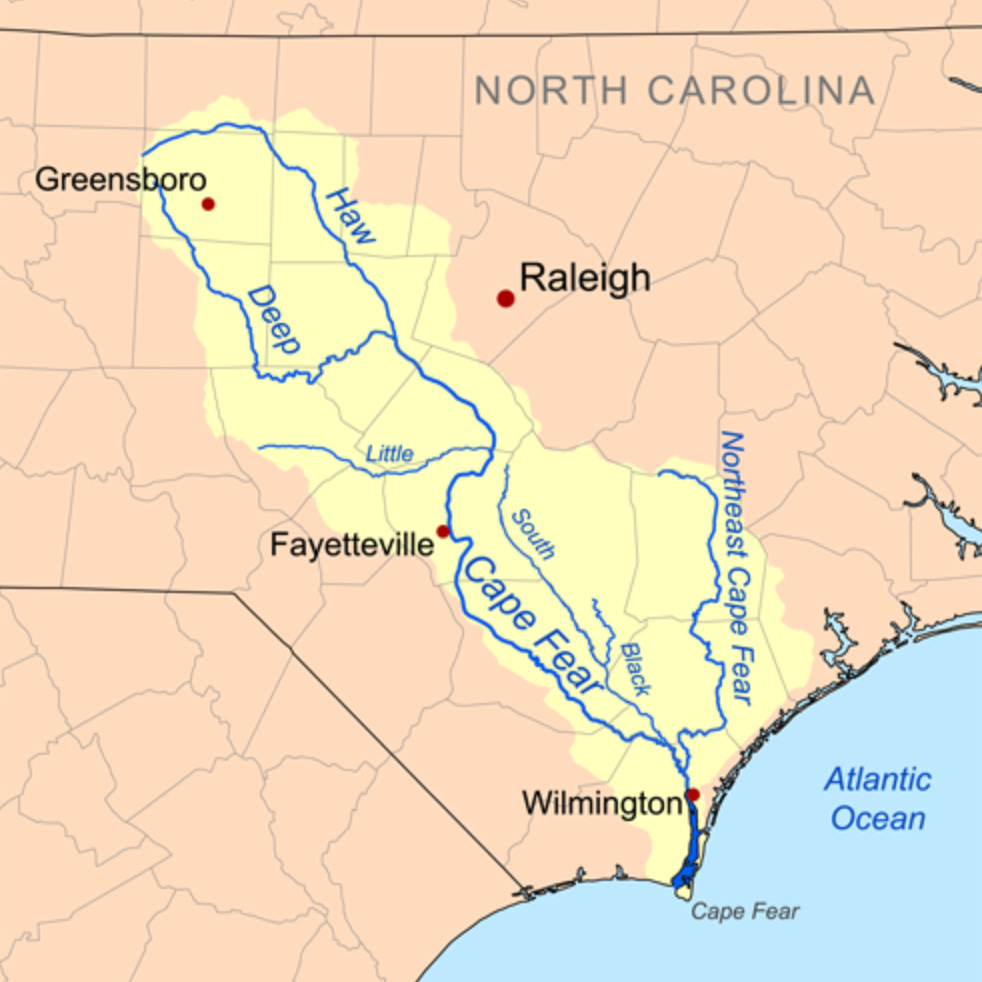Essay: "Forever chemicals" and Water in the Carolinas
Clean water is a sacred trust

Growing up along Carolina rivers and watching fields turn from green to gray with industrial runoff taught me early that water is more than a resource; it is life and, for many faith traditions, a sacrament. On May 29, 2025, the Wilmington Star-News reported that the U.S. Environmental Protection Agency plans to delay and, in some cases, rescind limits on certain per- and polyfluoroalkyl substances (PFAS), often called forever chemicals, in North Carolina’s drinking water. These chemicals, including GenX, PFHxS, and PFNA, linger in rivers, lakes, and aquifers and do not break down naturally or within the human body. While the EPA will still uphold strict limits for PFOA and PFOS, this rollback extends compliance deadlines. It removes enforceable standards for the newer PFAS compounds threatening rural wells and urban water systems.
Ecologically, these forever chemicals pose a grave threat to the Carolinas’ fertile wetlands and aquatic ecosystems. Historically impacted by decades of unregulated dumping and industrial discharges from Chemours, DuPont, and other manufacturers, the Cape Fear River basin has already registered elevated PFAS levels in drinking water and fish tissue. Studies link PFAS exposure even at trace levels to immune dysfunction, developmental delays in children, and increased cancer risks. These toxins accumulate in sediments and bioaccumulate in fish, undermining the region’s biodiversity, from microscopic plankton to apex predators. Our coastal marshes and riverine wetlands, which serve as nurseries for fish and buffer storms, depend on clean water. When forever or industrial chemicals enter these fragile habitats, they undermine the web of life that sustains wildlife and human communities downstream.
From a faith perspective, clean water is a sacred trust. Many Carolina congregations baptize believers in rivers that reflect creation’s beauty, while others bless wells to remember that water is a pure gift. When PFAS threaten public health, they do more than compromise ecosystems; they violate the covenant of stewardship that undergirds most religious teachings. Scripture calls us to keep and till the earth, and many Indigenous traditions in this region have long regarded water as a living relative to whom we owe care and respect. Allowing forever chemicals to persist without clear regulation challenges our moral responsibility to protect future generations and upholds injustices in communities that often lack political power or economic resources.
In practical terms, faith communities and ecological organizations can collaborate to demand stronger safeguards. Local congregations might host prayer vigils for clean water, partner with nonprofits to fund testing of private wells, or lobby state representatives to restore and strengthen PFAS limits. By combining scientific data, such as recent monitoring results from Cape Fear tributaries, with moral arguments rooted in scripture and tradition, we can amplify calls for accountability from polluters and the agencies that regulate them. Though Washington’s regulatory priorities may ebb and flow, grassroots advocacy grounded in ecological knowledge and religious conviction remains a steady tide for justice and healing.
In this moment of policy rollback, let us remember that advocacy is a spiritual practice. Protecting water is an act of solidarity with the more-than-human world and neighbors whose health and livelihoods depend on clean rivers. May our shared commitment to ecological integrity and religious values guide us as North Carolinians work together to ensure that no community endures forever chemicals in their drinking water.


